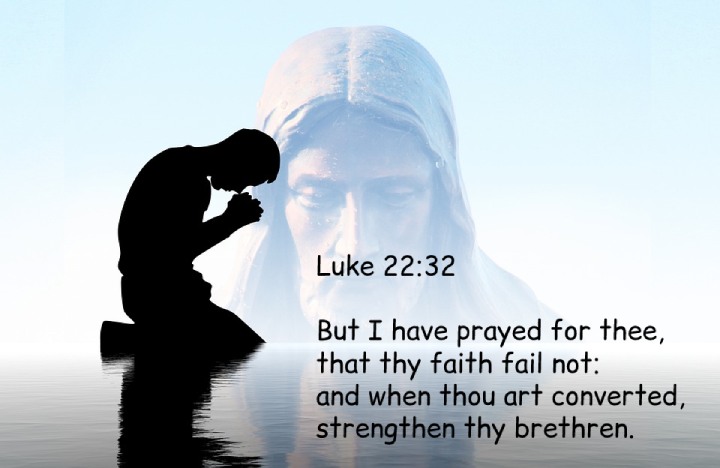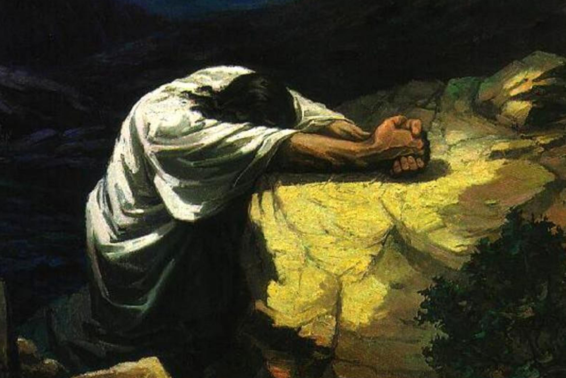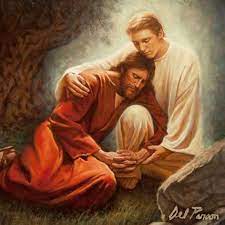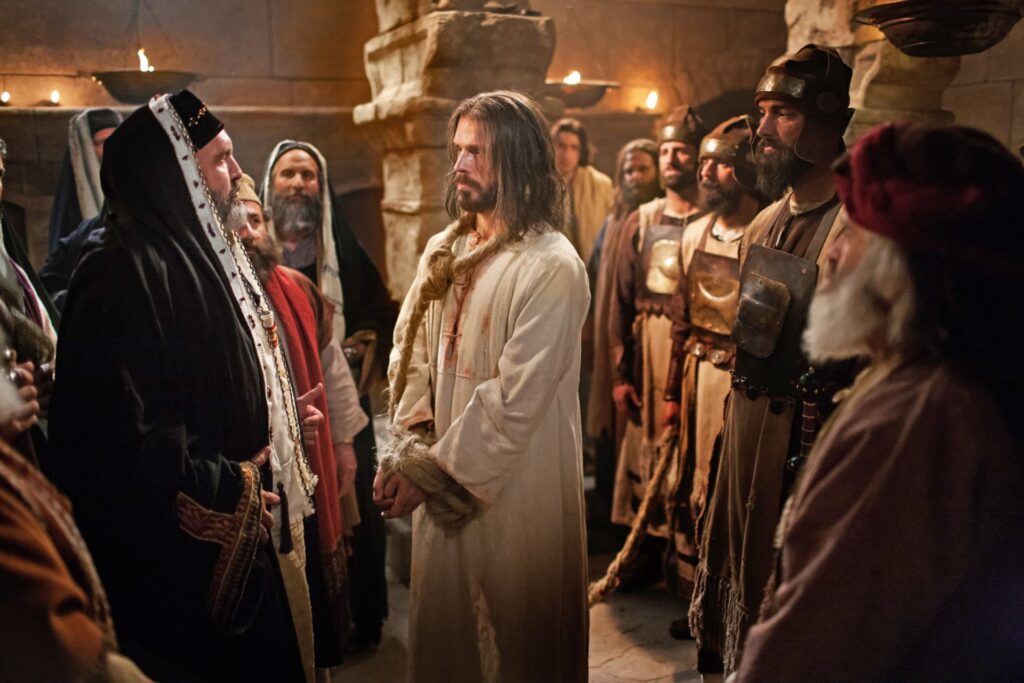To accompany your Come Follow Me study for June 12-18
Note that these two chapters significantly overlap such chapters as Matthew 26 and Mark 14, that we have read previously. Our primary focus this week will be on Jesus’ atonement in the Garden of Gethsemane and His appearance before the Jewish authorities after His arrest.
In addition to reading the indicated chapters, you may wish to:
Read the applicable portions of the New Testament Institute Student Manual at
- https://www.churchofjesuschrist.org/study/manual/new-testament-student-manual/introduction-to-the-gospel-according-to-st-luke/chapter-19-luke-18-22?lang=eng
- Chapter 27: John 17–19 (churchofjesuschrist.org)
See the following videos:
- Come Follow Me (June 12-18) Luke 22; John 18 | No Fault in This Man: The Trials of Jesus at (1) Come Follow Me (June 12-18) Luke 22; John 18 | No Fault in This Man: The Trials of Jesus – YouTube
- Jesus Warns Peter and Offers the Intercessory Prayer at Jesus Warns Peter and Offers the Intercessory Prayer – YouTube
- The Savior Suffers in Gethsemane at The Savior Suffers in Gethsemane – YouTube
- Jesus Is Tried by Caiaphas; Peter Denies Knowing Him at Jesus Is Tried by Caiaphas; Peter Denies Knowing Him – YouTube
- See from minute 3:19:27 to 3:34 of the following video:
- See from minute 1:18:50 to 2:27:50 of the following video:
- If you would like a Kahoot game related to this material which you could use for personal study or use with your family or your class, click here: https://create.kahoot.it/share/luke-22-john-18/4113db78-fe4c-4f1e-8068-8a16e4cd423c. (To use it with a group, after clicking on this link, you will need to log into Kahoot, creating a free account if you have not done so previously, then click on the blue “Start” button.)
Points to Ponder in Luke 22; John 18
1. Why would Jesus say to Peter, “When thou art converted, strengthen thy brethren”? (Luke 22:32) How could Peter be the chief apostle if he wasn’t even converted yet?

2. Can you think of at least four ways prayer could help keep us from entering into temptation? (Luke 22:40)
3. Some commentators have suggested that Jesus’ agony in Gethsemane was an example of his natural and human reaction to his impending crucifixion‑‑that He was admittedly afraid and prayed that, if possible, He might not have to go through with such a painful death but submitted in the end to the will of His Father. What changes would a Latter‑day Saint make in that explanation, and why?

4. Did Jesus suffer for the sins of everyone or just for the sins of those who He knew had repented or were going to repent?
5. What could the angel of Luke 22:43 possibly have said or done to “strengthen” the Creator?

6. Why didn’t Jesus give a straight answer when asked in Luke 22:70, “Art thou then the Son of God”? Why did He just say, “Ye say that I am”?

Possible Answers to Points to Ponder in Luke 22; John 18
1. Why would Jesus say to Peter, “When thou art converted, strengthen thy brethren”? (Luke 22:32) How could Peter be the chief apostle if he wasn’t even converted yet?
Though we sometimes improperly use the words as synonyms, there is a big difference between being convinced and becoming converted. The first is merely a relatively passive mental acceptance of a truth. The second is an inward change of heart and behavior. Though Peter was the best Jesus had to work with, and though Peter had testified, “Thou art the Christ, the Son of the living God,” he was not yet converted (changed) into the unwavering pillar of faith that he would become once the Holy Ghost became his constant companion following Jesus’ resurrection. Though he wept bitter tears afterwards for it, Peter nonetheless denied Jesus three times following His arrest. But he was later to become so strong that he willingly accepted crucifixion, only requesting, according to tradition, that he be crucified upside down, not considering himself worthy to be executed in the same way the Savior was.
2. Can you think of at least four ways prayer could help keep us from entering into temptation? (Luke 22:40)
It would seem to help in any or all of the following ways:
- It could result in the Lord’s preventing intolerable temptations from coming to us.
- It could give us a desire to avoid those situations where temptations might occur.
- It could inspire us to know the difference between good and evil in any given situation.
- It could give us strength and courage to resist temptations when they do come.
3. Some commentators have suggested that Jesus’ agony in Gethsemane was an example of his natural and human reaction to his impending crucifixion‑‑that He was admittedly afraid and prayed that, if possible, He might not have to go through with such a painful death but submitted in the end to the will of His Father. What changes would a Latter‑day Saint make in that explanation, and why?
D&C 19:15-19, together with D&C 76:24 and Joseph Smith’s poetic rendition of D&C 76, makes clear that it was not a fear of the cross which caused Jesus’ agony in Gethsemane but that in some unfathomable way, beginning in Gethsemane and concluding on the cross, He somehow voluntarily suffered physical and emotional pain equivalent to all that suffered or that will yet be suffered by all God’s children on this planet and on all His other creations since the beginning of time. When one considers that an estimated 100 billion have already lived on this earth, with an average lifespan of somewhere around 70 years, and when we consider that Jesus suffered the equivalent of the pain of all their suffering from wars, accidents, sickness, sin, and disappointment, and that His pain necessarily was intensified so as to be suffered for all in the span of only a few hours, it is truly incomprehensible. And when that is multiplied by the suffering required by the inhabitants of His other creations without number, “I Stand All Amazed” doesn’t begin to express the wonder we feel as we try to think about it.
Elder Tad R. Callister graphically expressed it as follows:
“What weight is thrown on the scales of pain when calculating the hurt of innumerable patients in countless hospitals? Now, add to that the loneliness of the elderly who are forgotten in the rest homes of society, desperately yearning for a card, a visit, a call—just some recognition from the outside world. Keep on adding the hurt of hungry children, the suffering caused by famine, drought, and pestilence. Pile on the heartache of parents who tearfully plead on a daily basis for a wayward son or daughter to come back home. Factor in the trauma of every divorce and the tragedy of every abortion. Add the remorse that comes with each child lost in the dawn of life, each spouse taken in the prime of marriage. Compound that with the misery of overflowing prisons, bulging halfway houses and institutions for the mentally disadvantaged. Multiply all this by century after century of history, and creation after creation without end. Such is but an awful glimpse of the Savior’s load. Who can bear such a burden or scale such a mountain as this? No one, absolutely no one, save Jesus Christ, the Redeemer of us all” (The Infinite Atonement [2000], 105).
4. Did Jesus suffer for the sins of everyone or just for the sins of those who He knew had repented or were going to repent?
D&C 19:16 clearly states that He suffered for all. No one can ever say he didn’t have a chance because Jesus never paid the price for his sins.
5. What could the angel of Luke 22:43 possibly have said or done to “strengthen” the Creator?
It will indeed be interesting to see a video replay of that great event someday and find out the answer. It is hard to see how a few encouraging words could have made much difference to the immensity of the Lord’s suffering, as detailed above. Perhaps in part it was an honor for a particular angel to be given that mission. Elder Bruce R. McConkie theorized that it could have been Michael, or Adam, whose fall brought about mortality and the need for a Savior. Still, it is entirely possible the angel, whoever he was, did provide some degree of comfort. It wasn’t until the cross that Jesus was to cry out, “My God, why hast thou forsaken me?”
6. Why didn’t Jesus give a straight answer when asked in Luke 22:70, “Art thou then the Son of God”? Why did He just say, “Ye say that I am”?
A review of the various Bible translations of that verse at Luke 22:70 – Bible Gateway shows that many of the translators understood that Jesus was indeed proclaiming His divinity at this point. Proposed translations include:
- You said it—I AM.
- You truly say that I am.
- Yes, you are right when you say that I am.
- You are right to say that I am.
- You rightly say that I am.
- You correctly say that I am.
- It’s just as you say.
We have a similar situation in John 18:37, where the King James Translation could make it appear Jesus didn’t give a clear answer when Pilate asked Him if He was a king. But several translations make it clear that Jesus was answering in the affirmative. The Amplified Bible, for example, renders Jesus’ answer as: “You say [correctly] that I am a King. This is why I was born, and for this I have come into the world, to testify to the truth. Everyone who is of the truth [who is a friend of the truth and belongs to the truth] hears and listens carefully to My voice.”
